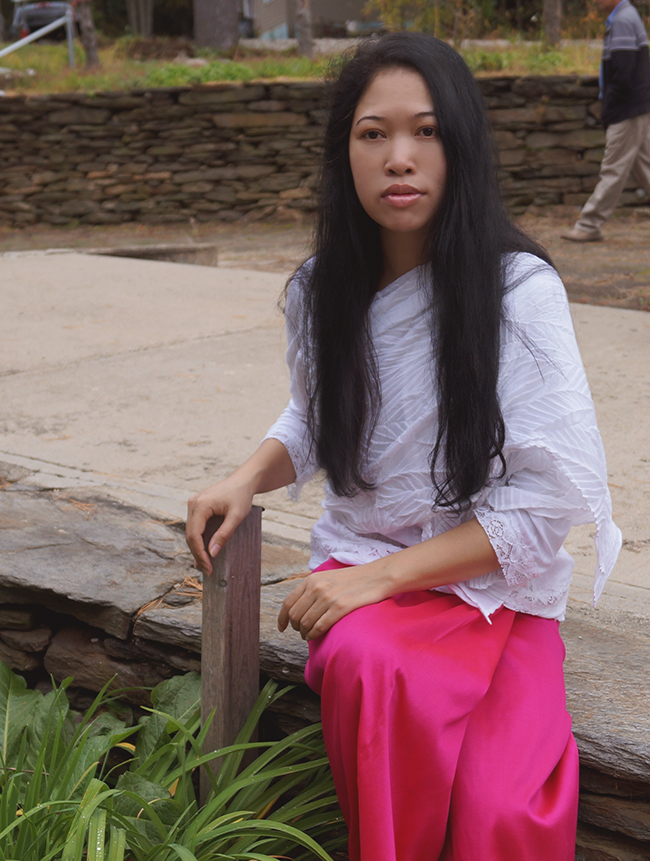-
The sunlight of awareness Comment February 7, 2015 -
Suffering: Everyone suffers from these thing Comment February 7, 2015Suffering: Everyone suffers from these thing
One of the Four Noble TruthsBirth- When we are born, we cry.
Sickness- When we are sick, we are miserable.
Old age- When old, we will have ache and pains and find it hard to get around.
Death- None of us wants to die. We feel deep sorrow when someone dies.Other things we suffer from are:
Being with those we dislike,
Being apart from those we love,
Not getting what we want,
All kinds of problems and disappointments that are unavoidable.The Buddha did not deny that there is happiness in life, but he pointed out it does not last forever. Eventually everyone meets with some kind of suffering. He said:
“There is happiness in life,
happiness in friendship,
happiness of a family,
happiness in a healthy body and mind,
…but when one loses them, there is suffering.”~Dhammapada
-
The Triple Gem: Buddha, Dhamma, Sangha Comment February 7, 2015The central focus of inspiration and devotion for Buddhists
is the Triple Gem (also known as the Three Treasures and
the Three Refuges). These three are Buddha, Dhamma
(Dharma), and Sangha.Buddha means ‘Enlightened One’ or ‘Awakened One,’ and
is generally used to refer to the founder of Buddhism. There
have been other Buddhas before him, however, and will be
other Buddhas in the future.The word Dhamma (in Sanskrit, Dharma) is often used to
refer to the Buddha’s teachings, but it also means the eternal
Truth which the teachings convey to us. Dhamma is threefold:
the Dhamma that we study, that which we practice, and the
Dhamma of Realization.Sangha literally means ‘community’ or ‘assembly.’ The word
has two meanings in proper Buddhist usage: the community of
disciples (whether ordained or not) who have gained Realization
of any of the stages of Awakening; and the community of ordained
disciples–bhikkhus (monks) and bhikkhunis (nuns).Source: http://mettajon.tripod.com
-
Nothing is lost in the universe Comment February 7, 2015The first truth is that nothing is lost in the universe. Matter turns into energy, energy turns into matter. A dead leaf turns into soil. A seed sprouts and becomes a new plant. Old solar systems disintegrate and turn into cosmic rays. We are born of our parents, our children are born of us.
We are the same as plants, as trees, as other people, as the rain that falls. We consist of that which is around us, we are the same as everything. If we destroy something around us, we destroy ourselves. If we cheat another, we cheat ourselves. Understanding this truth, the Buddha and his disciples never killed any animal. Link source
-
Today’s strength… Comment February 7, 2015Worrying is carrying tomorrow’s load with today’s strength- carrying two days at once. It is moving into tomorrow ahead of time. Worrying doesn’t empty tomorrow of its sorrow, it empties today of its strength. ~Corrie ten Boom
If a problem is fixable, if a situation is such that you can do something about it, then there is no need to worry. If it’s not fixable, then there is no help in worrying. There is no benefit in worrying whatsoever. ~Dalai Lama
-
Today's strength 121 February 6, 2015Worrying is carrying tomorrow's load with today's strength- carrying two days at once. It is moving into tomorrow ahead of time. Worrying doesn't empty tomorrow of its sorrow, it empties today of its strength. ~Corrie ten Boom
"If a problem is fixable, if a situation is such that you can do something about it, then there is no need to worry. If it's not fixable, then there is no help in worrying. There is no benefit in worrying whatsoever." ~Dalai Lama
http://leelavadeeflower.blogspot.com/2015/02/todays-strength.html
+465 This post has been reshared 20 times on Google+
-
In individual Hearts Comment February 6, 2015 -
Dharma Bridge Comment February 6, 2015 -
Fragrance of virtue Comment February 6, 2015 -
Sweet friends like U 2 February 6, 2015
















